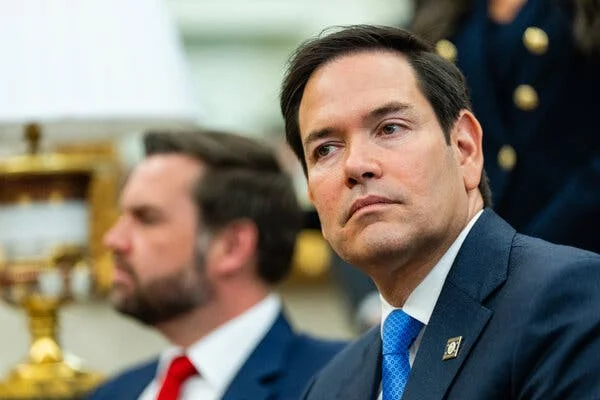
Trump Administration Proposes Drastic Cuts to State Department Budget and Foreign Aid
In a bold move that could reshape the United States' presence on the global stage, the Trump administration has unveiled a proposal to slash the State Department budget by nearly half, coupled with dramatic reductions in foreign aid. This controversial plan, outlined in two internal memorandums, emphasizes a significant shift in U.S. foreign policy priorities and raises crucial questions about the future of international diplomacy.
The memorandum, originating from the Office of Management and Budget, proposes a dramatic decrease in the State Department and USAID's total budget, reducing it to approximately $28.4 billion. This reduction of $27 billion or nearly 48% from Congress's approval for 2025 could entail severe implications for U.S. humanitarian initiatives and global health funding. Reports suggest that programs focused on humanitarian assistance could face cuts of 54%, while global health funding might see a 55% reduction.
Adding to the proposed cuts, the memo foresees major workforce reductions, targeting an estimated 90% of support for international organizations, including NATO and the United Nations. Crucial programs, such as the Fulbright Scholarship, which has played a significant role in educational exchanges, would also be eliminated. This sweeping downsizing emphasizes a retreat from the U.S.'s historically prominent role in global diplomacy.
Reaction from political figures has been swift and critical. Senator Chris Van Hollen labeled the budget plan “an unserious budget,” predicting bipartisan opposition within Congress. The American Foreign Service Association has voiced concerns about the implications of such budget cuts, stating they would leave a vacuum that adversarial nations like China and Russia may seek to exploit.
Moreover, the plans are not finalized and face potential hurdles within both the administration and Congress. Under the proposal, up to 30 U.S. missions, primarily in Africa and Europe, may be closed, significantly altering the operational landscape for U.S. diplomacy abroad.
The discussions around these budget cuts come at a pivotal moment for the U.S.'s role in the world. With tensions rising in various regions worldwide, critics argue that reducing diplomatic presence could embolden adversaries and undermine progress in global cooperation on pressing issues such as climate change, health crises, and security.
As the deadline for Congress to respond approaches, the future of these proposed cuts remains uncertain. Will the U.S. government retract from such a critical component of its foreign policy, or will it ultimately be held accountable for its international commitments? The conversation around this budget proposal is likely to intensify in the coming weeks, as stakeholders reflect on the potential ramifications of these drastic measures.
What do you think about the proposed cuts to the State Department budget? Will a reduction in funding affect U.S. global leadership? Share your thoughts in the comments below.